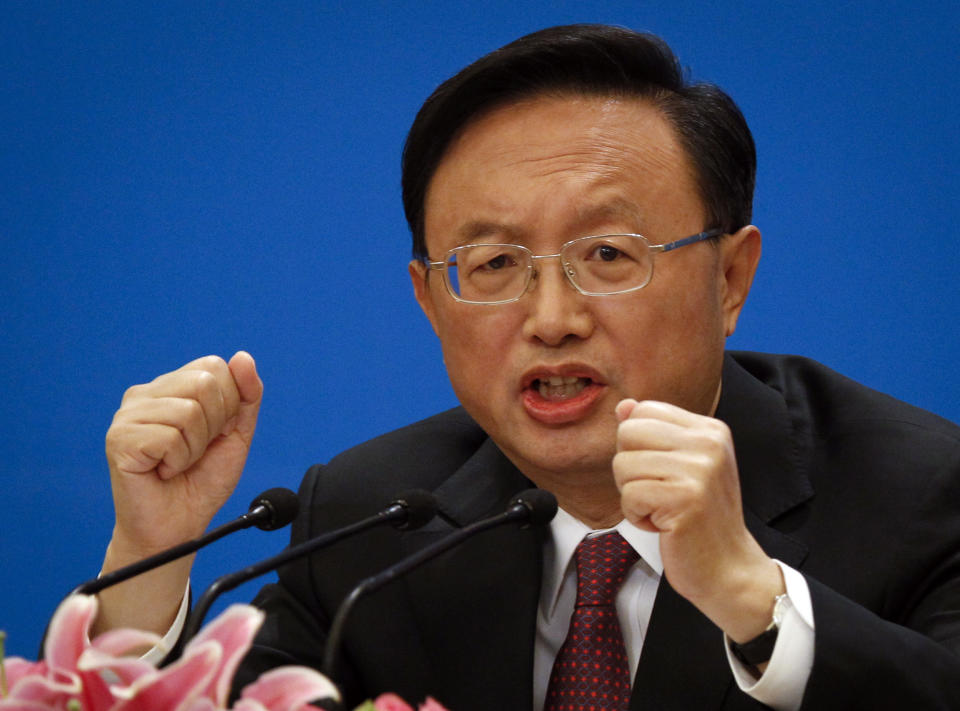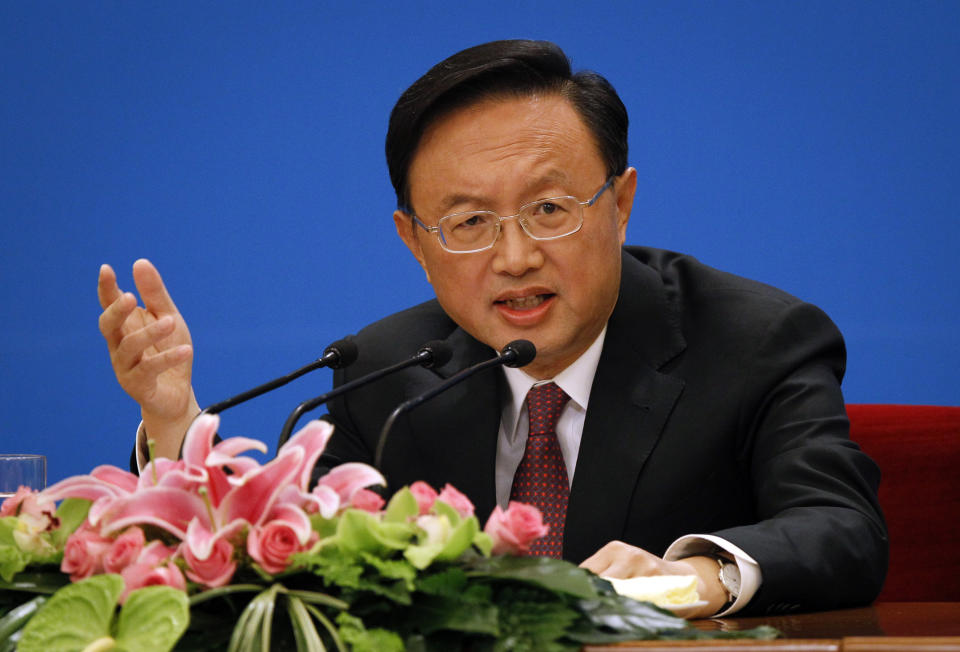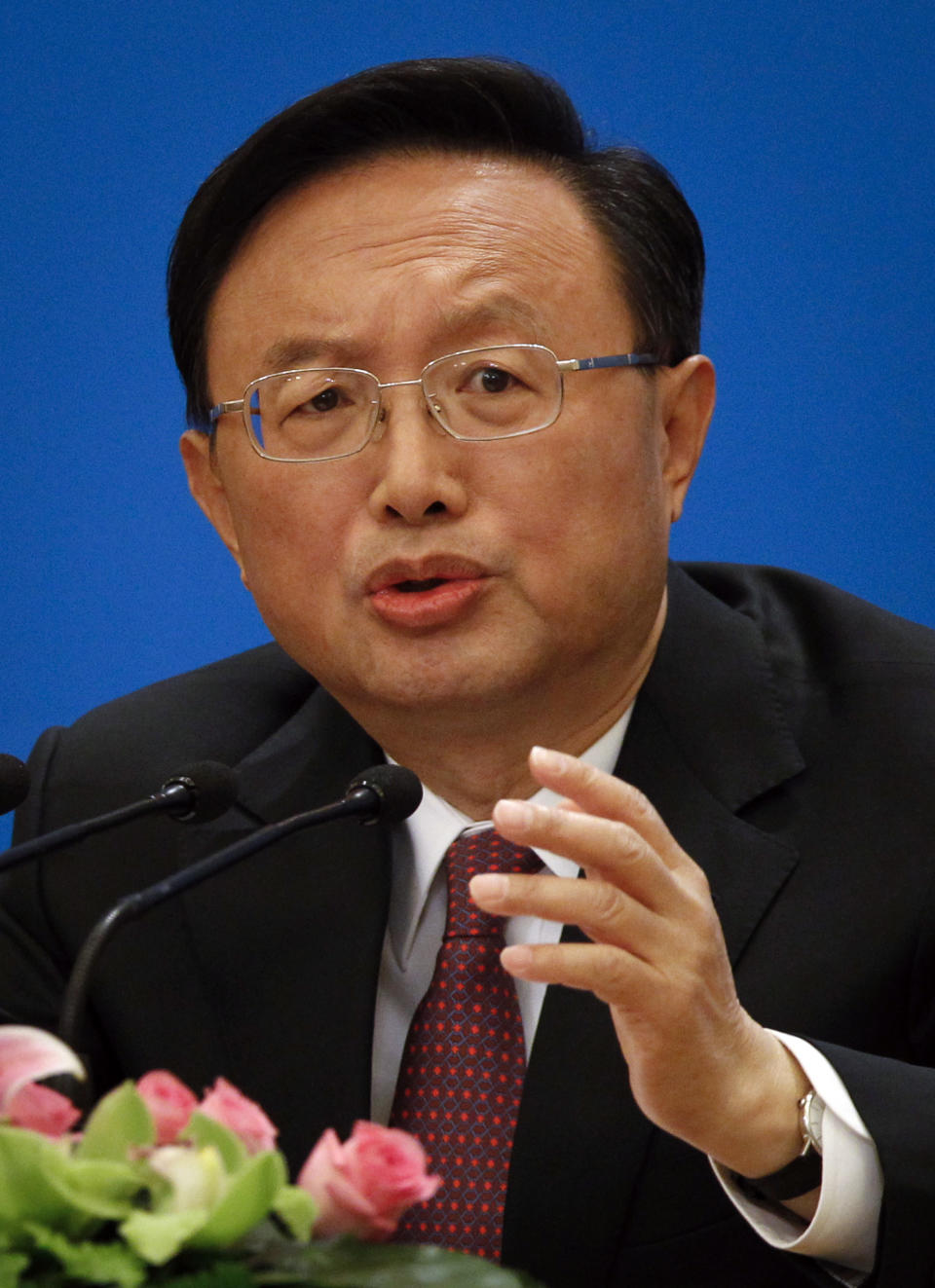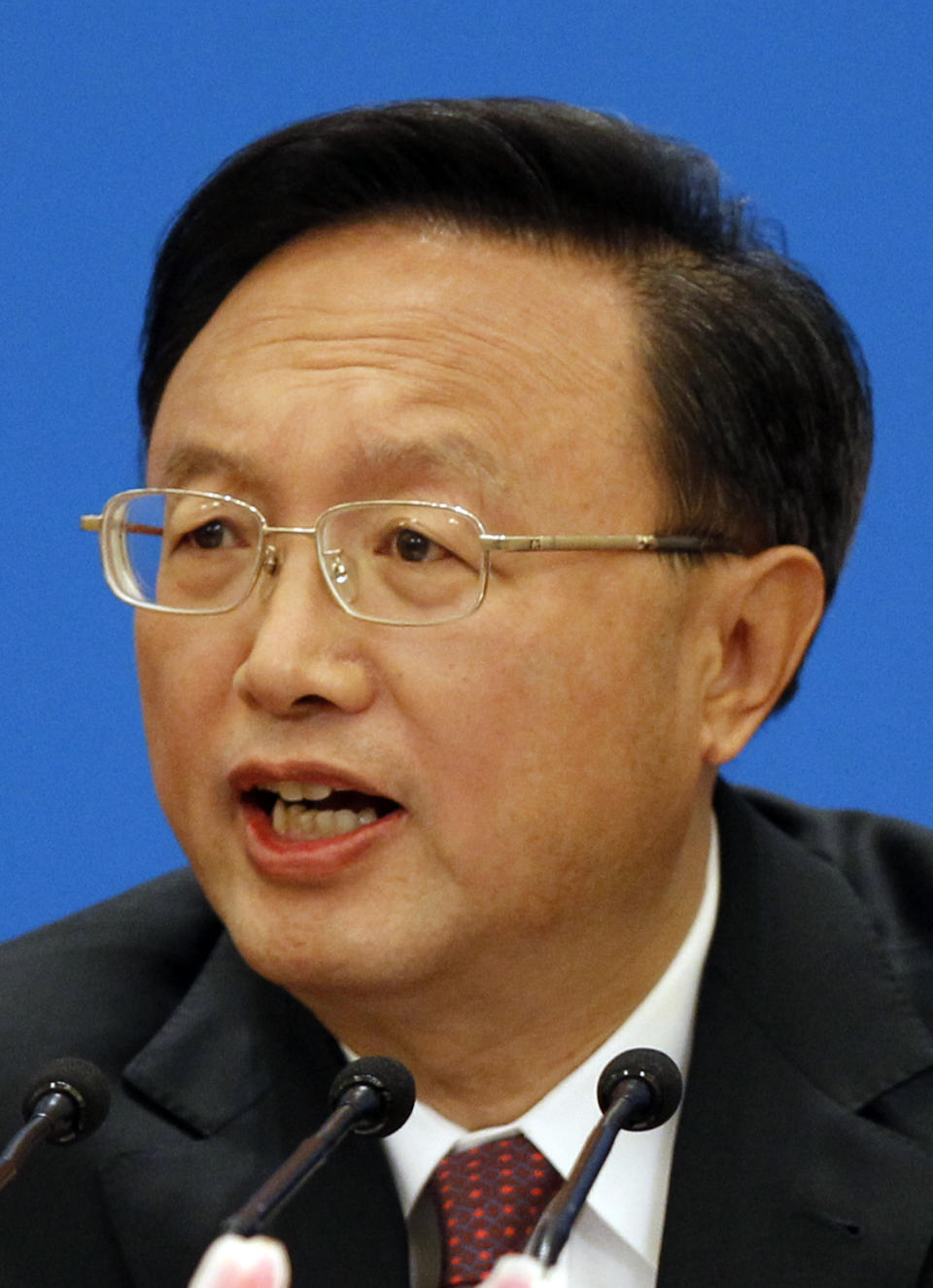China: US must build trust on Taiwan, Tibet issues
BEIJING (AP) — China's foreign minister said Tuesday that often fractious ties between Beijing and Washington are steadily improving, but that more trust is needed and the onus is on the U.S. to respect Chinese interests on issues such as Taiwan and Tibet.
Yang Jiechi's comments on China's most important bilateral relationship reflect the positive gloss given to ties by the successful getting-to-know-you visit to the U.S. last month by Vice President Xi Jinping, the heir-apparent to President Hu Jintao.
With its economy slowing and a delicate leadership transition looming, Beijing is looking to keep relations with Washington on an even keel, barring any major affronts to Chinese dignity or security.
Addressing reporters at an annual news conference, Yang said the key to sustaining momentum is for each to heed the other's core concerns, although he mentioned only issues important to Beijing.
"In particular, the U.S. side needs to honor its commitments and carefully and properly handle Taiwan- and Tibet-related issues that concern China's core interests," Yang said at the packed conference, held on the sidelines of the annual meeting of the National People's Congress, China's legislature.
Beijing has long pressured Washington to end arms sales to Taiwan — a territory China claims — and withdraw support for Tibetan spiritual leader the Dalai Lama, whom China accuses of fomenting separatism in Chinese-ruled Tibet.
U.S. diplomats say tensions with Beijing have risen since President Barack Obama announced plans to shift the U.S. military's focus back to the Asia-Pacific region following the winding down of operations in Iraq and Afghanistan. Chinese foreign relations experts and outspoken military officers have expressed concerns that Washington is seeking to contain China's growing influence and turn the region against it.
Asked about the U.S. strategic pivot, Yang said Beijing was keeping its eye on the long-term positive momentum in relations and called for more high-level exchanges between Washington and Beijing as a way to build trust.
"The two countries should work together to increase mutual strategic trust, remove various disturbances and open up new prospects," he said.
Yang praised Xi's recent trip to the U.S. as having boosted relations and said Beijing and Washington were in "close communication" on Syria and Iran, issues that have generated a degree of bilateral friction over recent months.
Beijing has spoken out over damaging new bilateral U.S. sanctions against Iran over its nuclear program, and Washington has expressed repeated bitter disappointment over Beijing's veto of United Nations resolutions aimed at ending Syria's bloody crackdown on dissent.
Yang repeated China's stance that such disputes should be resolved through negotiations rather than by sanctions or threats. He said China was opposed to the development of nuclear weapons in the Middle East, but said countries have the right to the peaceful use of nuclear energy as long as they meet their international obligations.
The United States and other countries accuse Iran of trying to develop a nuclear weapons program, and have imposed sanctions to get Tehran to end its nuclear defiance and address global concerns about its nuclear activities.
"We believe this issue should be properly handled through dialogue" and not through confrontation and sanctions, Yang said.
He also said that despite stinging international criticism from Washington, Europe and the Arab world, China's stance on Syria, where it is seen as backing the government, was gaining widespread support.
The United Nations says 7,500 people have been killed in a year of violence in Syria. President Bashar Assad's troops have been accused of carrying out harsh attacks on protesters, as well as rebels battling the government.
Yang also said Beijing was hopeful for progress in talks on ending North Korea's nuclear programs following last week's breakthrough agreement between Pyongyang and Washington, and would continue to support Europe and the euro as the continent struggles to overcome its debt crisis.






